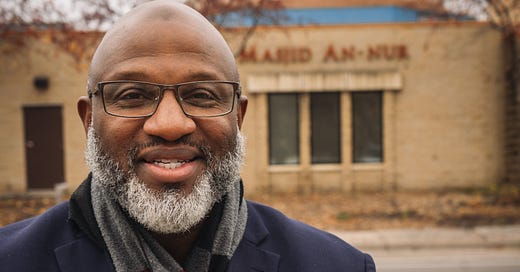In today's world, wealth is often measured by how much we can accumulate—houses, cars, gadgets, and luxuries. Yet true wealth is not about amassing material possessions but freeing ourselves from the need for excess. Absolute abundance is defined by the ability to live, meet our needs, and share with others. Islam teaches us to resist the overconsumption of materialism, reminding us that our ultimate purpose is to strengthen our connection with Allah, nurture our families, and build meaningful relationships.
The Danger of Materialism
The relentless pursuit of wealth often leads to neglecting what truly matters. Overconsumption drives us to live beyond our means, forcing us into debt—a form of modern slavery where our time and freedom are traded for money. The Prophet Muhammad (peace be upon him) warned of the toll of debt, saying:
Abu Huraira reported: The Messenger of Allah, peace and blessings be upon him, said, “The soul of a believer remains suspended by his debt until it is paid.” (Sunan al-Tirmidhī 1078)
Debt does not merely burden our financial lives but takes a spiritual toll. When overwhelmed by financial obligations, we struggle to focus on worship, feel peace in our hearts, or dedicate time to family and community. This is why Islam emphasizes moderation, simplicity, and contentment.
Three Strategies to Break Free
To free ourselves from materialism and debt, we must cultivate habits rooted in faith and discipline.
1. Prioritize Contentment (Qana'ah)
Contentment is a cornerstone of Islamic teaching. When we learn to appreciate what we have, we reduce the urge to acquire unnecessary items. Practicing gratitude and mindfulness helps us distinguish between needs and wants, allowing us to live within our means.
2. Practice Budgeting and Financial Discipline
Islam encourages accountability and intentionality in our financial dealings. Allah reminds us:
“Indeed, the wasteful are brothers of the devils, and ever has Satan been to his Lord ungrateful.” (Qur'an 17:27)
Budgeting ensures we allocate resources wisely, avoiding overspending or wastefulness. We allocate funds for essentials, savings, and charity, limiting spending on luxuries. Tools such as budgeting apps or simple spreadsheets can be powerful aids in maintaining financial discipline.
3. Cultivate Generosity and Avoid Hoarding
Generosity is a hallmark of Islamic character. The Qur’an praises those who spend for the sake of Allah:
“Those who spend in prosperity and adversity, who restrain anger and pardon the people—Allah loves the doers of good.” (Qur'an 3:134)
Giving to others fosters humility and breaks materialism's hold on our hearts. Regularly giving zakat (obligatory charity) and sadaqah (voluntary charity) ensures wealth circulates within the community and purifies our earnings.
The Importance of Financial Literacy
Teaching financial literacy to children at a young age is essential for cultivating a healthy relationship with money. When children understand the value of money, the dangers of debt, and the importance of saving, they grow into financially responsible and spiritually mindful adults.
Encourage children to set financial goals, earn through permissible means, and give to charity. Teach them that wealth is a trust (Amanah) from Allah and must be used wisely. By instilling these values early, we equip them with the tools to navigate a consumer-driven world without losing their moral and spiritual compass.
The Spiritual Nature of Wealth
In Islam, our relationship with wealth is deeply spiritual. Good financial habits demonstrate trustworthiness, an essential quality in a believer. The Prophet Muhammad (peace be upon him) said:
“The best of people are those who are most beneficial to others.” (Al-Muʻjam Al-Awsaṭ, 5787)
By living within our means, avoiding debt, and prioritizing giving over Hoarding, we embody the Islamic ideal of using wealth to benefit others and attain closeness to Allah.
Conclusion
True wealth lies in the richness of the soul, not the accumulation of possessions. By resisting materialism, managing our finances wisely, and cultivating generosity, we free ourselves from debt and the spiritual burdens it creates. Let us redefine wealth as living simply, nurturing our relationships, and drawing closer to Allah. When we view money as a tool rather than a goal, we align our lives with faith, discipline, and gratitude—values that lead to worldly and eternal success.



As-Salaam-Alaikum. Excellent advice. Jazakallah Khair.